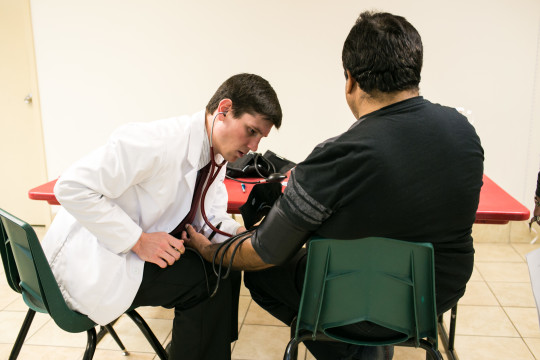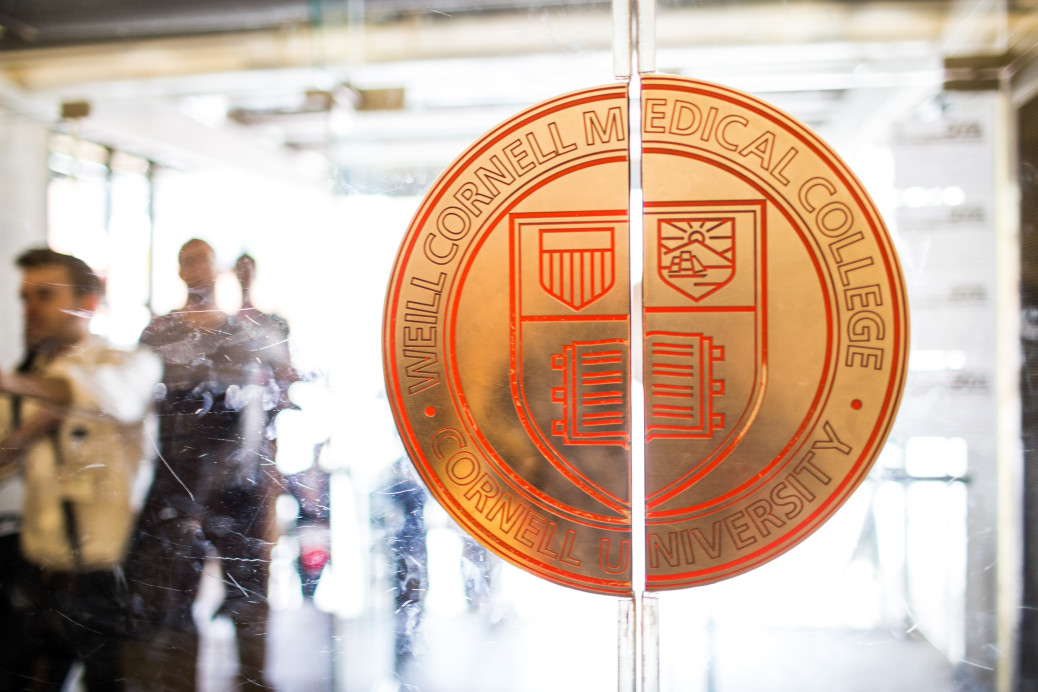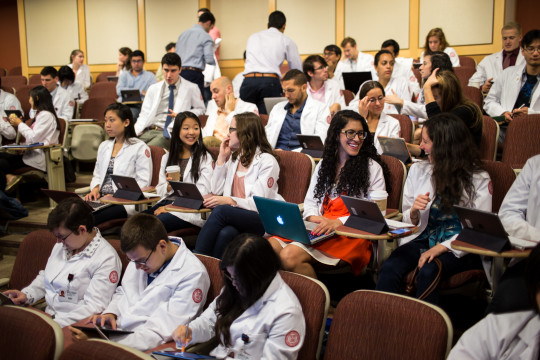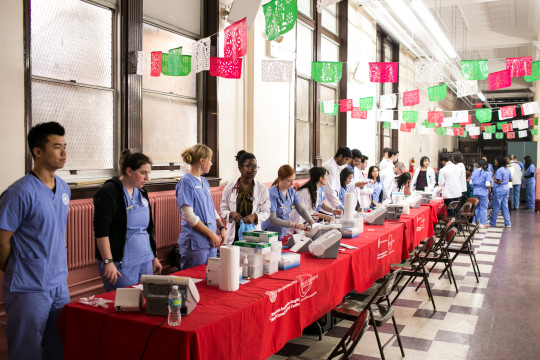“Some days feel like years and some years feel like days.”
That’s a saying my PBL leader Dr. Meyer told us that is invoked in medicine, describing the bizarre time warp that consumes us. Yes, there are days, patient after patient, that never seem like they never end, but there are also entire years and projects that rush by in a blink of an eye.
The beginning of medical school has felt precisely like that. Every day — chock full of classes and labs back-to-back, interest group meetings sprinkled in, shadowing opportunities if I can manage, then hard-core studying too, and somewhere in there things like eating, sleeping, running, and attempting to do normal life things. Yet, somehow, 3 full months have already gone on by?! We’ve almost completed our basic science curriculum and all of gross anatomy?!
Why yes. Yes we have.
Med school here at Weill Cornell is designed to be immersive. They house us all in the dorm Olin Hall right across the street from the school and hospital. Every morning we have 5 hours of class together, and on Tuesdays and Thursdays we have 3 additional hours of anatomy lab together. We can find our food easily just one block away on 1st Ave. If we so desired, we could live each and every day without leaving this 1-block radius here! Yeah, I do my best to get out and explore the wonders of New York City, but then I realize that I typically do that with my med school buddies anyway, the same ones I see day in and day out. In other words, I embrace being immersed.
In terms of curriculum, Cornell throws us right into the fray. Through the Heart to Heart Community Outreach Program, I was helping screen people for diabetes and cholesterol health by week 3. By week 5, I was taking patient histories by myself in the Memorial Sloan Kettering Cancer Center. There’s good reason why they try to teach us all this information so quickly, too. For example, one day in PBL week 6, I randomly came across the paraneoplastic syndrome myasthenia gravis, and that very afternoon I met a patient whose cancer presented with that disorder. The patient was both impressed and quite please that he could chat with me about what it felt like.
On the topic of interacting with patients, a white coat changes everything. I’ve strolled through the hospital halls in a t-shirt and shorts, and patients (rightfully) dismiss me as just another passerby. Then when I put on some business casual, a white coat, and my ID, impressions and attitudes shift. People at look at me differently and treat me with a bit more respect. When I chat with patients, they’re more patient and kind, and most of the time they end the conversation with “thank you, and good luck with school”. I’ve heard too that when I don my white coat, my own demeanor changes; I stand just a little straighter, smile a little more broadly, and talk more kindly. Part of it is deliberately trying to be someone my patients will like and trust, but so much of it is subconscious too.

Meanwhile, I can’t rush ahead too quickly, because I’m still trudging through schoolwork and learning the basics. I’m grateful that the curriculum is pass/fail, which invokes another saying that floats around med school: P=MD. That is, all I need to do is pass with a 65% and I’ll get my degree! Comforting right?
Well, at least for me, I’m beginning to feel the pressure to retain as many details as I possibly can, because those details can make an enormous difference. Maybe it’ll be something like remembering to tell my diabetic patient to hold metformin if he’s coming in for a contrast-enhanced scan or else it might overwhelm his kidneys. One of the patients I’m following over the next 4 years has multiple sclerosis, and it’s only because of that that I’m learning about the nuances of her disease. Now I know why it’s such a struggle for her to climb her stairs, or why it’s so important for her to have air conditioning. So there, that’s three diseases now: Type 1 Diabetes, Type 2 Diabetes, and MS. How am I possibly going to remember the rest? There are also bigger questions looming that will determine how the rest of my life follows. What sort of research should I pursue? What should I specialize in 3 years down the road?
Don’t get me wrong, med school has been a great time so far. I love the immersion given to me because it brings me so close to new friends and new opportunities, and I can still find time to photograph, play piano, and cube. Nonetheless, I have this feeling that med school will force me to mature fairly soon, whether I want to or not.
Additionally, right now my concerns seem so petty as soon as I think about even just a few years into the future of healthcare as a whole. How is the ACA going to affect the administration and overall system architecture? Can we move away from bankrupting families when someone falls ill? What are we going to do about these multi-drug resistant microbes? How do we battle the rampant diabetes epidemic when we’re too attached to our diet and comfort? These are difficult questions, and there are countless more for us to ponder as doctors.


